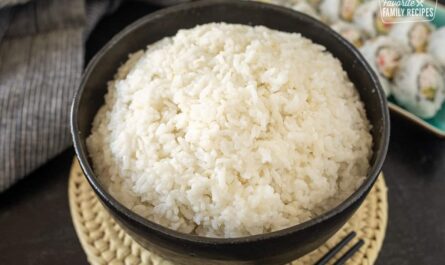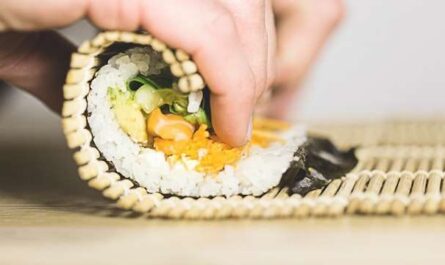Sushi knives are a crucial tool in crafting exquisite sushi creations. However, these delicate instruments are susceptible to rust if not cared for properly. Understanding how to prevent rust on sushi knives is essential for both professional chefs and culinary enthusiasts alike. Preventing rust ensures the longevity and efficiency of these knives, making them a reliable companion in the kitchen.

Understanding the Importance of Proper Care
To effectively prevent rust, it is vital to understand why rust forms on sushi knives. Rust is typically the result of moisture and oxygen interacting with the metal surface. Sushi knives, often made of high-carbon steel, are particularly prone to rust due to their composition. By implementing proper care techniques, you can protect your investment and enhance your sushi-making experience.
Choose the Right Knife Material
When selecting a sushi knife, the material plays a significant role in its tendency to rust. Opt for blades made of high-quality stainless steel or coated with rust-resistant finishes. While high-carbon steel knives are popular for their sharpness, they require vigilant care to avoid rust. Balancing your desire for sharpness with maintenance ease can make a substantial difference.
Consider Your Knife’s Purpose
Different sushi knives serve various purposes. Whether you’re slicing, dicing, or filleting fresh ingredients, choose a knife that aligns with your needs. Understanding each knife’s purpose will help you make informed decisions about maintenance and rust prevention.
Implementing Routine Cleaning Practices
Regular cleaning is crucial in the fight against rust. After each use, gently wash your sushi knife with lukewarm water and mild detergent. Avoid using harsh chemicals or abrasive sponges that can damage the blade. Carefully dry the knife immediately with a soft cloth to prevent moisture buildup.
Why Immediate Drying Matters
Drying your sushi knife immediately after washing is paramount. Any residual moisture left on the blade can lead to rust formation over time. It’s a simple yet effective practice that significantly extends your knife’s lifespan.
Proper Storage Techniques
Storing your sushi knives properly is just as important as cleaning them. Utilize a knife block, magnetic strip, or protective sheath to keep the blade safe from moisture and other contaminants. Storing knives separately also prevents them from knocking against each other, maintaining their sharpness.
Avoiding Common Storage Mistakes
Avoid leaving your sushi knives in the sink or on a damp countertop. These locations are breeding grounds for rust. Implementing dry and organized storage solutions ensures your knives remain in pristine condition.
Utilizing Rust-Preventive Solutions
Several products are designed specifically to prevent rust on knives. Consider applying a thin layer of food-safe mineral oil or specialized knife oil to coat the blade. This creates a barrier between the metal and environmental elements that cause rust.
Applying Oil the Right Way
When applying oil to your sushi knife, ensure it’s a food-safe variety. Use a clean cloth to coat the blade lightly, paying extra attention to nooks and crevices where moisture can hide.
Incorporating Regular Sharpening Routines
Sharpening your sushi knife not only maintains its cutting efficiency but also helps prevent rust. A smoothly honed edge is less likely to retain moisture or impurities that contribute to rust buildup.
Tools for Effective Sharpening
Invest in quality sharpening stones or professional sharpening services to maintain your knife’s razor-sharp edge. A sharp knife is less prone to rust and will provide consistent performance in every cut.
Maintaining an Environmentally Controlled Kitchen
Where you store and use your knife matters. Keeping your kitchen environment dry and controlled helps reduce the risk of rust. Utilize dehumidifiers or exhaust fans to manage moisture levels in particularly humid areas.
The Role of Humidity
Excessive humidity can accelerate rusting on sushi knives. Monitoring and controlling humidity levels in your kitchen space is a preventive measure worth implementing.
Being Mindful While Using Knives
Mindful use of your sushi knives also prevents rust. Avoid cutting acidic or high-moisture foods directly on the blade, as this can speed up rust formation. Transfer food to a cutting board promptly.
Practices for Prolonged Knife Life
Pair knife use with cautionary measures, such as wiping the blade between uses if preparing multiple items, to minimize exposure to potential rust-causing elements.
Regularly Inspecting for Early Signs of Rust
Make periodic inspections routine to catch early signs of rust. Addressing small spots early can prevent them from spreading and causing extensive damage to your sushi knife.
Identifying Warning Signs
Recognizable signs of rust include discoloration, spots, or pitting on the blade’s surface. Paying attention to these indicators allows for prompt action.
Ensuring Lifelong Durability of Sushi Knives
The longevity of your sushi knife depends on consistent effort and responsible care. Creating a cleaning, drying, and storage routine safeguards against rust, ensuring the knife remains a functional piece in your culinary toolkit.
Investment in Maintenance Tools
Investing in quality maintenance tools, such as effective sharpeners and rust-preventive oils, ensures your sushi knife’s enduring performance.
Expert Opinions on Knife Care
Learning from experts provides valuable insights into advanced knife care techniques. Incorporating tips from seasoned chefs enhances your understanding of rust prevention.
Sharing Best Practices
Explore tips from [Sushi and Rice](https://sushiandrice.com/compact-sushi-tool-kits/) on maintaining sushi tools and [All About Sushi Guide](https://justhungry.com/basic-sushi-etiquette-and-more-thoughts-about-sushi) for more sushi-related insights.

FAQs
What causes rust on sushi knives?
Rust forms when moisture and oxygen interact with the knife’s metal surface, often due to improper cleaning or storage practices.
Can stainless steel sushi knives rust?
While stainless steel is more resistant to rust than other metals, it is not completely rust-proof. Proper care is still necessary to prevent rust.
How do I remove rust from a sushi knife?
Use a gentle abrasive pad or rust remover specifically designed for knives. It’s essential to act quickly to prevent rust from spreading.
This article contains affiliate links. We may earn a commission at no extra cost to you.




